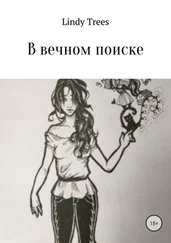“You would like Marius’s friends,” I said at random. “They are a brother and a sister, and I am sure you would get on well if you met them.”
“I’m sure I would, darling,” she said, turning her eyes on mine.
And then it was all right. By this time we had finished lunch; before I left her, I had promised to arrange a meeting between her and them. Alice was smiling, letting her eyes rest on me, and she talked with a quickening energy that I had not seen in her for years. But I did not know what it was all about, what the lunch was about — whether she had arranged it and been pleasant merely in the hope of this promised meeting, or whether we had really made some contact in the things that mattered between ourselves. I did not know whether it was my effort to be nice to her that had been successful — but as we were about to leave each other in the street and I was thanking her for the lunch, she turned to me suddenly and said, “You are getting quite good at businesses, darling: perhaps you are growing a little older after all”; and then she squeezed my arm and walked away.
For a few days I saw no one. I stayed in my room and tried to write, but what was there to say when people were such mysteries? The sun shone and the children shouted in the streets, but men and women were shuttered in basements behind the light.
Men and women were like shops, with their goods in the windows, what they had bought and what they offered to sell. The display was all that was visible, the display of words and behaviour in which they trafficked and grew rich and sometimes grew bankrupt, the figures of their businesses recorded in ledgers around the shelves; but what the men and women were like, were really like, apart from the businesses, was never known. The customer never penetrated through to the back parlour where the shop-keeper lived, the shop-keeper so courteous and impassive, where he took off his smile and slept. The customer never got down into the basement where the efforts were weighed, the businesses balanced, where the question was judged, finally — this is or this is not what matters, this has or has not been worth while.
And Alice was a dealer in mysteries: this I knew. It was her way of dressing the shop window, of introducing novelties, of keeping the public amused. To cloak her pretences she used to patter like a conjuror, to catch the audience guessing she made slips with her hands. But the slips were false slips, they were pretences at pretending, the reality was behind them and the audience was fooled. Trying to understand Alice was like trying to work out a sentence with too many negatives; the sense became lost, baffled, in the cancellation of meaning. In Alice there were layers and layers of possible cancellations, but the audience never knew what was intended and what was not; how much she was bluffing others and how much she was bluffing herself.
And it was not only professional conjurors who played tricks with their audience. Every audience was at a distance demanding to be amused, and everyone, in this way, was a conjuror. The tricks were demanded and the tricks were performed, but the audience was supposed not to see the reality. The only difference between the professional con-juror and the amateur was that the professional at least knew himself how the trick had been played and why; while the amateur did not.
All amateurs, I thought — and that included Annabelle and Peter and Marius. But with them, somehow when they were among their audience, the tricks appeared no longer as tricks but rather as demonstrations of a reality that lay behind them. When they produced a rabbit out of a hat they did so because they wanted a rabbit; when flags came out of their mouths instead of words the words were not needed and the flags were used to wave with; when pigeons flew out from their coat-tails it was because they wore coats that pigeons lived in. With them what they acted was an expression of what they felt. In their shop windows lay only that which they loved, and so it was not a shop, for there was no buying and selling. They only gave and received, and lived there, and the shop and basement were one.
And I, in my room, a hired room, a washstand disguised as a writing desk, a curtain for a cupboard, a gas fire demanding shillings that I seldom possessed, a chest of drawers, two beds, a table in the middle, the walls the colour of brown papers, the covers of the chairs and divans like the woven remains of dust — this was my basement, my home, the cell wherein I slept. But this was not where I could live — (were the basements of others the same?) — there was nothing of myself in this solitude — (was there anything of themselves in others’?) — were all basements then a sham and was there nothing but the windows? Lying on my bed and watching the gradually yellowing ceiling where it ran into the frieze above the walls I knew that it was not here that I could work. And now in the evenings, out of doors, I could not yet go round to see Annabelle and Peter. Because, if the world is a dressed window and the eyes of the customers go no further than the window it is not as a customer that one should ask for more than the world. If I went to Annabelle and Peter and knocked at their door I should be approaching as a customer, my smile would be the smile of consciousness and their welcome would be frozen by the formality of my words. Going like this, being accustomed to the world, we could not have helped it. For me, at least, having grown so rooted into loneliness, it would have been inevitable. So that in hoping for more than the world, hoping for reality, I looked for a different approach. And I could find no other approach, because the entrances to reality are through the world’s windows.
In Grosvenor Square, when the sun shone, the typists came out from their offices to eat their lunch beneath the statue. They sat on the parapets with their paper bags, and soldiers came in twos and threes to sit opposite them. Mothers arrived with their children, prams were handled up the steps, straps were unfastened, the children ran, clattered, splashed in the fountain, hurried about their business of having fun among the stones. A man lay on his back with a handkerchief over his face: a woman with thick legs took her shoes off. A soft silence of sweat rose dropping through the light, and here I came for lunch to eat my sandwiches.
A small boy was riding a bicycle up the path. The place was different in the daylight. A tiny bicycle, like a toy, a fat tiny boy with a peaked cap and spectacles. I looked up to where the façade of the block of flats where Annabelle lived rose pink and pale and majestic. The small boy swerved, some typists screamed, he straightened himself: he was like some turn at the circus, imperturbable and whirling on his jerking wheels. There was a window high up in the flat pink surface where a curtain hung limply into the daylight. The silver wheels twinkled, the soldiers joined in: lurching between their legs he was like a rabbit dodging trees. I did not know which was Annabelle’s window: I did not mind.
Sun and solitude and nothing to do. I will sit here, I thought, until something happens. The small boy was arrested by a keeper. One of the windows was hers: out of the door there was a chance that she might come. A paper bag exploded like a pop-gun. I could sit here for years, I thought: there is nothing to stop me. An old woman like a Rembrandt was being photographed: some Americans were focusing in groups of three. A wave of laughter ran through the crowd. A soldier was inflating another bag, his eyes were like cherries, his cheeks blown tight. As he burst it the girls put their hands to their ears and wailed. Her eyes will be like an animal’s, I thought. The soldier beckoned towards the girls, he moved his body with his hands along the parapet, he patted the vacant stonework by his side. She will be dressed in red, she will have her hands in her pockets, when she walks she will not appear to be moving. The girls squirmed, protested, placed their fingers in front of their faces in reproof. Then one of them rose, advanced tentatively, was pushed from behind, and collapsed uproarious upon skirted knees. She will not appear to be moving. Then another girl made the attempt, stepped gingerly, held her skirt like a paddler. She was half way across and then suddenly, with a rush, was beside the soldier with a bun from his bag. She stretched her legs out in front of her, lay back on her elbows. The two sides cheered. It was like a game of French and English.
Читать дальше












